Resource Center
The Transit Workforce Center is pleased to host a curated collection of publications and other materials to assist stakeholders engaged in transit workforce development. The Resource Center includes case studies, training materials, research reports, and other materials of interest, including publications produced by federal government agencies, transit organizations, and independent research entities. Resources may be filtered by topic, resource type, and transit mode. This TWC blog post explains how to use the Resource Center.
We are continuing to update the Resource Center regularly. Please contact us via the Request Help menu option if you would like assistance using the Resource Center or are looking for resources on a particular topic. We also welcome suggestions of topics or specific resources to add.
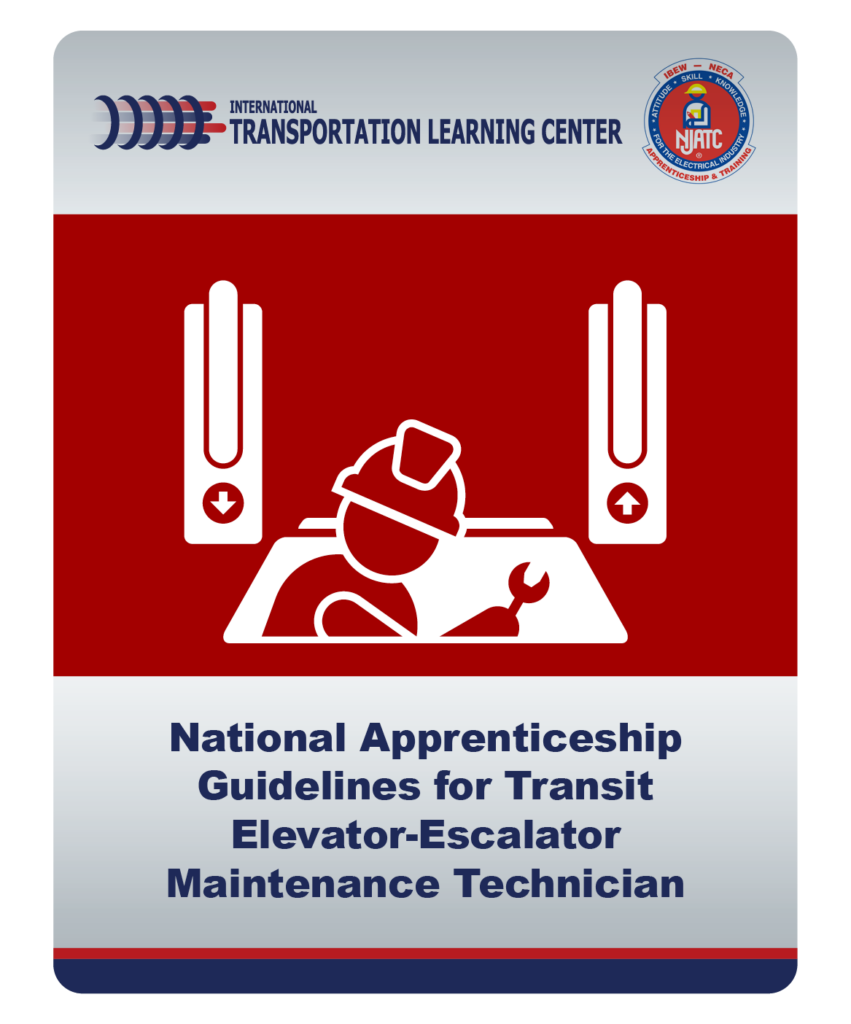
National Apprenticeship Guidelines for Transit Elevator-Escalator Maintenance Technician
The purpose of these National Guidelines for Apprenticeship Standards (National Guideline Standards) is to provide policy and guidance to local Sponsors in developing these Standards for Apprenticeship for local approval and registration. These National Guideline Standards developed by the Sponsor are certified by the U. S. Department of Labor, Office of Apprenticeship as substantially conforming to the requirements of Title 29, CFR parts 29 and 30. State Apprenticeship Agencies recognized by the Office of Apprenticeship to register local programs, and/or local laws and regulations, may impose additional requirements that must be addressed in the local apprenticeship standards.
International Transportation Learning Center & National Joint Apprenticeship and Training Committee (NJATC)
January 2014
TOPICS: Apprenticeship, Policy and Planning, Training
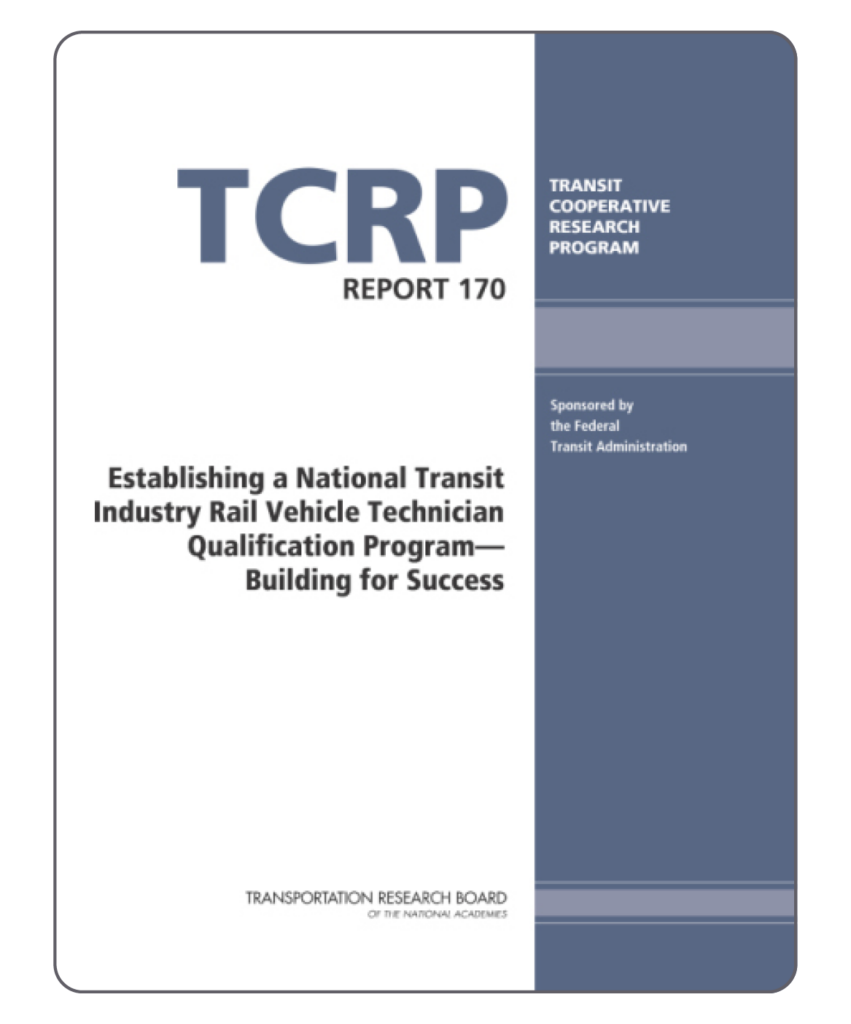
Establishing a National Transit Industry Rail Vehicle Technician Qualification Program—Building for Success
TRB’s Transit Cooperative Research Program (TCRP) Report 170: Establishing a National Transit Industry Rail Vehicle Technician Qualification Program—Building for Success describes a system of qualification that has been developed for rail vehicle technicians. This qualification system is available for implementation through the Transportation Learning Center.
The program integrates national training standards, progressive classroom curricula and introductory courseware, on-the-job learning modules, an apprenticeship framework that combines well-designed sequences of learning, mentoring to support learners, and coordination of classroom and on-the-job learning. The qualification system also includes written and hands-on certification assessments to confirm that technicians have the practical knowledge and skills required to perform their jobs at the highest level of expertise.
Transit Cooperative Research Program (TCRP) & International Transportation Learning Center
January 2014
LEARN MORE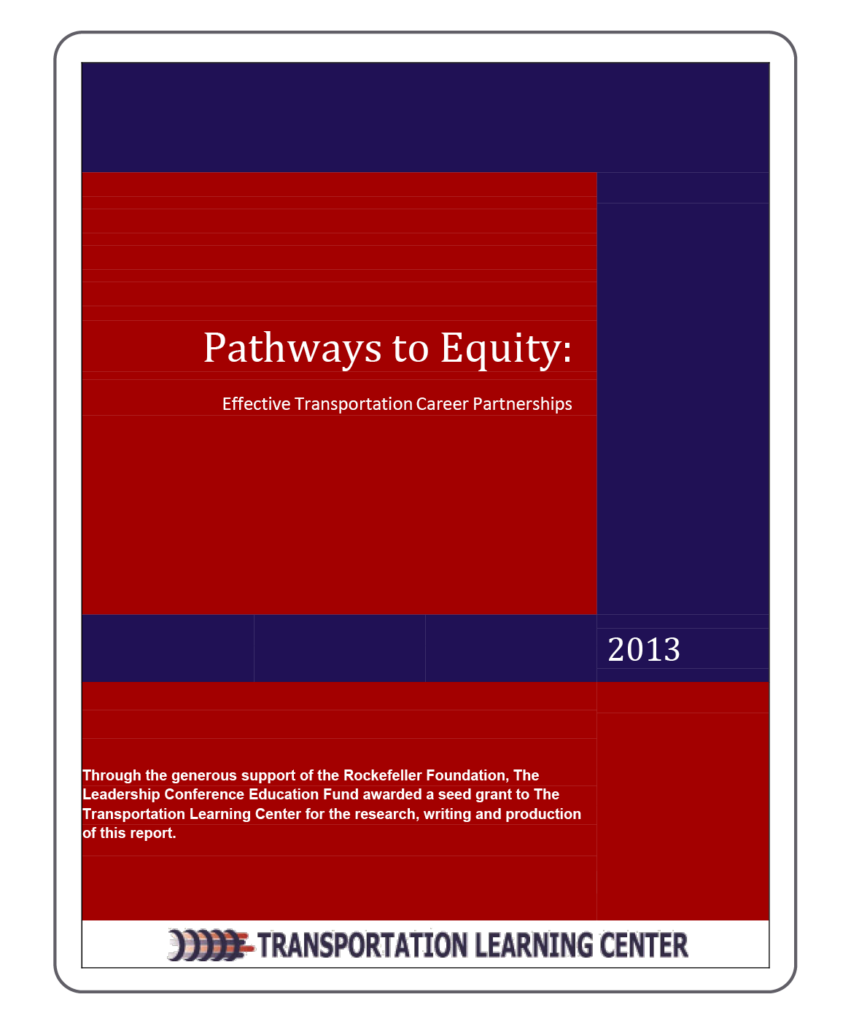
Pathways to Equity: Effective Transportation Career Partnerships
Expanding access to quality careers in transit systems and in transit capital construction has been the focus of innovative local programs around the country in recent years. This report presents case profiles of two of the most promising examples – one for youth Career Pathways into transit industry careers, and one for targeted construction hiring and training of disadvantaged workers for transit capital projects. The two local case profiles are a Project Labor Agreement in Los Angeles providing expanded access to jobs and training for public transportation capital construction and a youth Career Pathways partnership in Philadelphia linking career and technical education with future transit careers. Both of these models, if taken to scale in the transit industry, can have positive impacts, locally and nationally, for improving access to family-sustaining careers and training and for improving educational outcomes for disadvantaged groups – urban low-income and minority groups as well as women – who have previously been under-represented in these occupations.
International Transportation Learning Center
December 2013
TOPICS: Career Pathways, Diversity, Equity, Inclusion, and Access, Hiring and Recruitment, Retention, Training
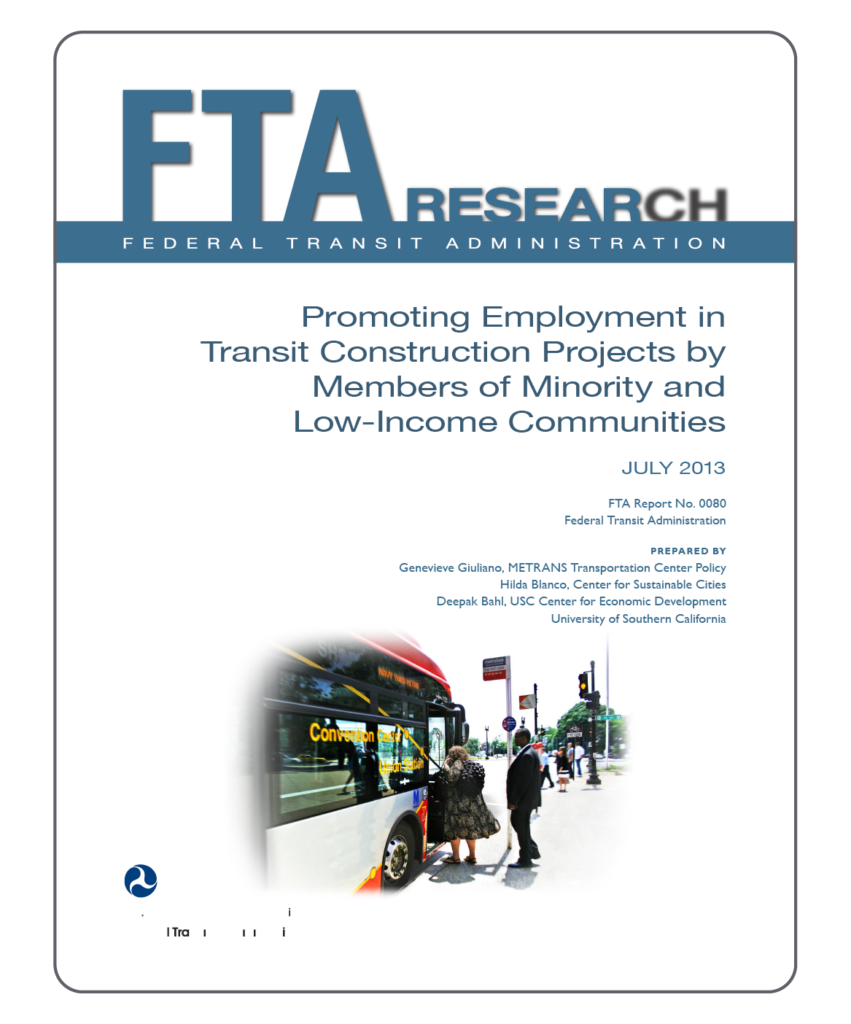
Promoting Employment in Transit Construction Projects by Members of Minority and Low Income Communities
This report summarizes research investigating the participation of members of low-income and minority populations in employment generated by transit projects and identifies practices to increase their participation. It features four in-depth case studies of light rail projects.
Federal Transit Administration
July 2013
TOPICS: Apprenticeship, Career Pathways, Diversity, Equity, Inclusion, and Access, Hiring and Recruitment, Policy and Planning, Training
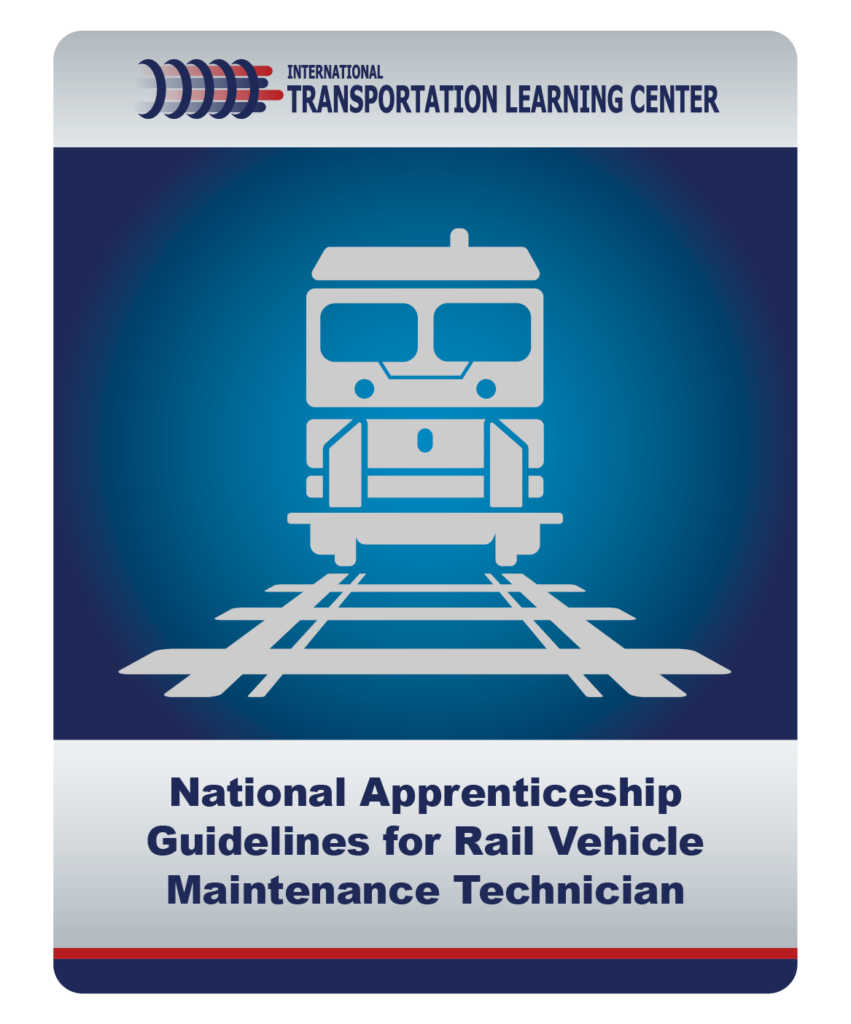
National Apprenticeship Guidelines for Rail Vehicle Maintenance Technicians
The purpose of these National Guidelines for Apprenticeship Standards (National Guideline Standards) is to provide policy and guidance to local Sponsors in developing Standards for Apprenticeship for local approval and registration.
International Transportation Learning Center; National Rail Car Training Committee
June 2013
TOPICS: Apprenticeship, Training
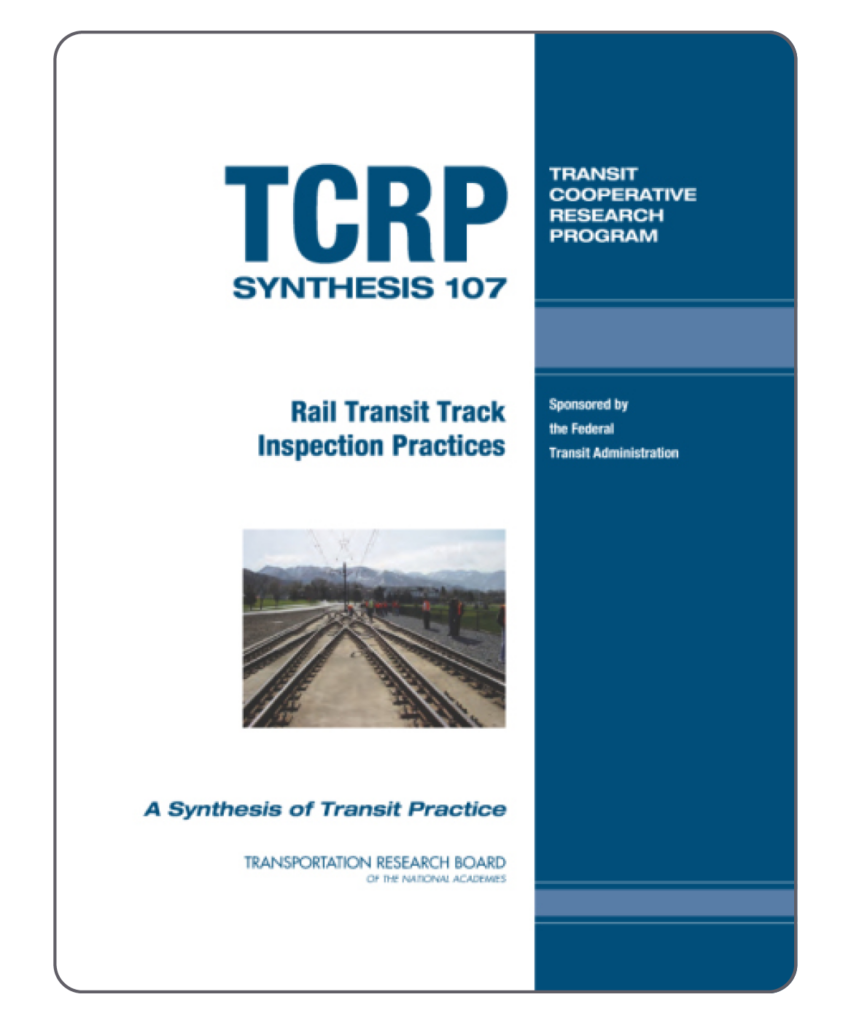
Rail Transit Track Inspection Practices
TRBs Transit Cooperative Research Program (TCRP) Synthesis 107: Rail Transit Track Inspection Practices offers information across a range of older and newer U.S. rail transit agencies on track inspection practices and policies.
Issues addressed in the report include agency staffing, agency organization and characteristics, track inspection program criteria, training and certification, procurement, and track safety practices.
Transit Cooperative Research Program (TCRP)
January 2013
TOPICS: Policy and Planning, Procurement, Safety and Health, Training
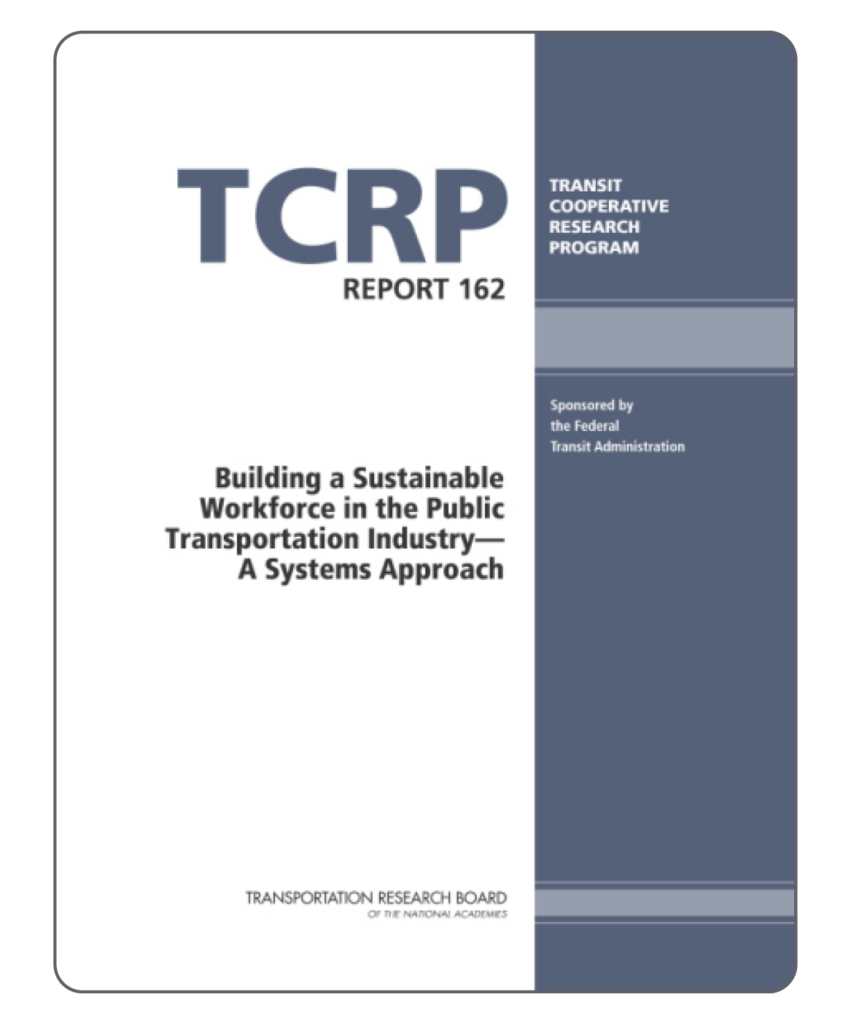
Building a Sustainable Workforce in the Public Transportation Industry—A Systems Approach
TRB’s Transit Cooperative Research Program (TCRP) Report 162: Building a Sustainable Workforce in the Public Transportation Industry—A Systems Approach provides a guidebook that addresses contemporary issues in workforce development, retention, and attraction, and public transportation image management.
The guidebook provides practical tools to transit agencies on a variety of workforce issues including workforce strategies that enhance organizational processes, performance metrics to evaluate the impact of workforce strategies, image management techniques that improve perceptions of the public transportation industry, and benchmarking processes that allow for continuous organizational improvement.
The guidebook is separated into modules that may be used independently or together in the form of the fully integrated guidebook.
Transit Cooperative Research Program (TCRP)
January 2013
LEARN MORE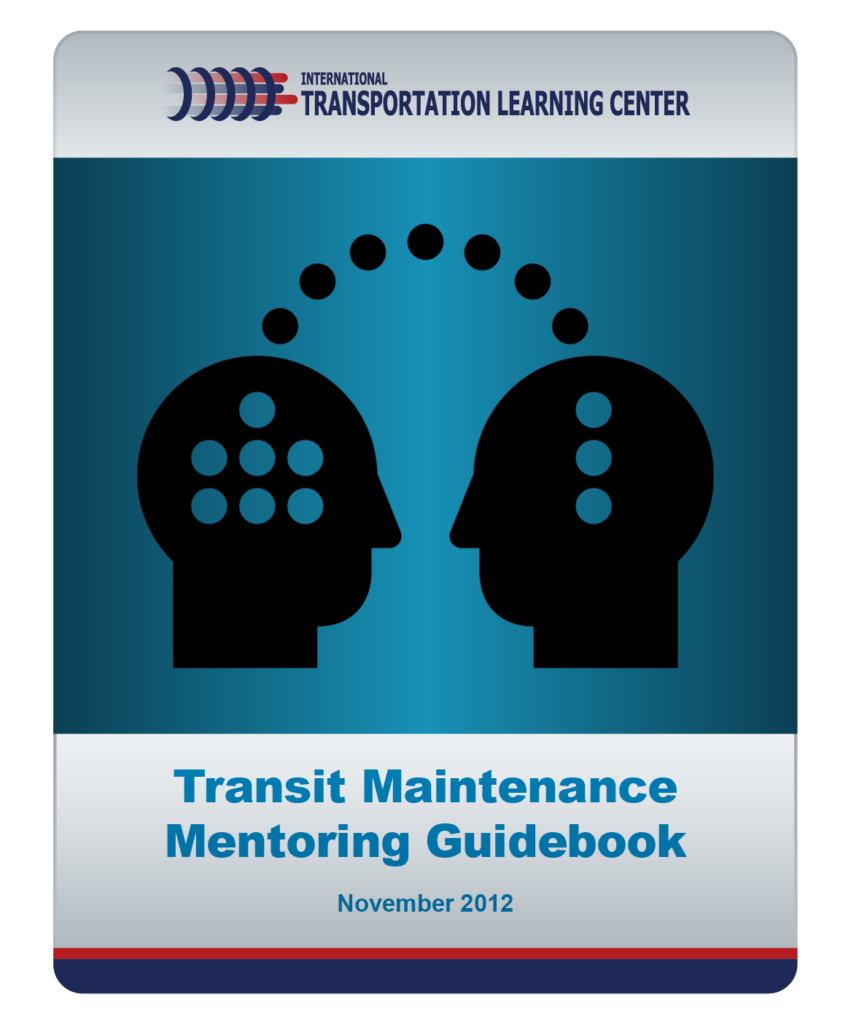
Transit Maintenance Mentoring Guidebook
The purpose of this report is to serve as a guidebook, offering information that transit agencies can use to establish mentoring as a training method with guidance, suggestions, and examples to implement or expand upon existing mentoring programs. It is based on a generic mentoring guidebook developed by the USDOT, modified and enhanced to reflect transit maintenance applications.
International Transportation Learning Center
November 2012
TOPICS: Apprenticeship, Diversity, Equity, Inclusion, and Access, Mentorship, Trainer and Mentor Development







